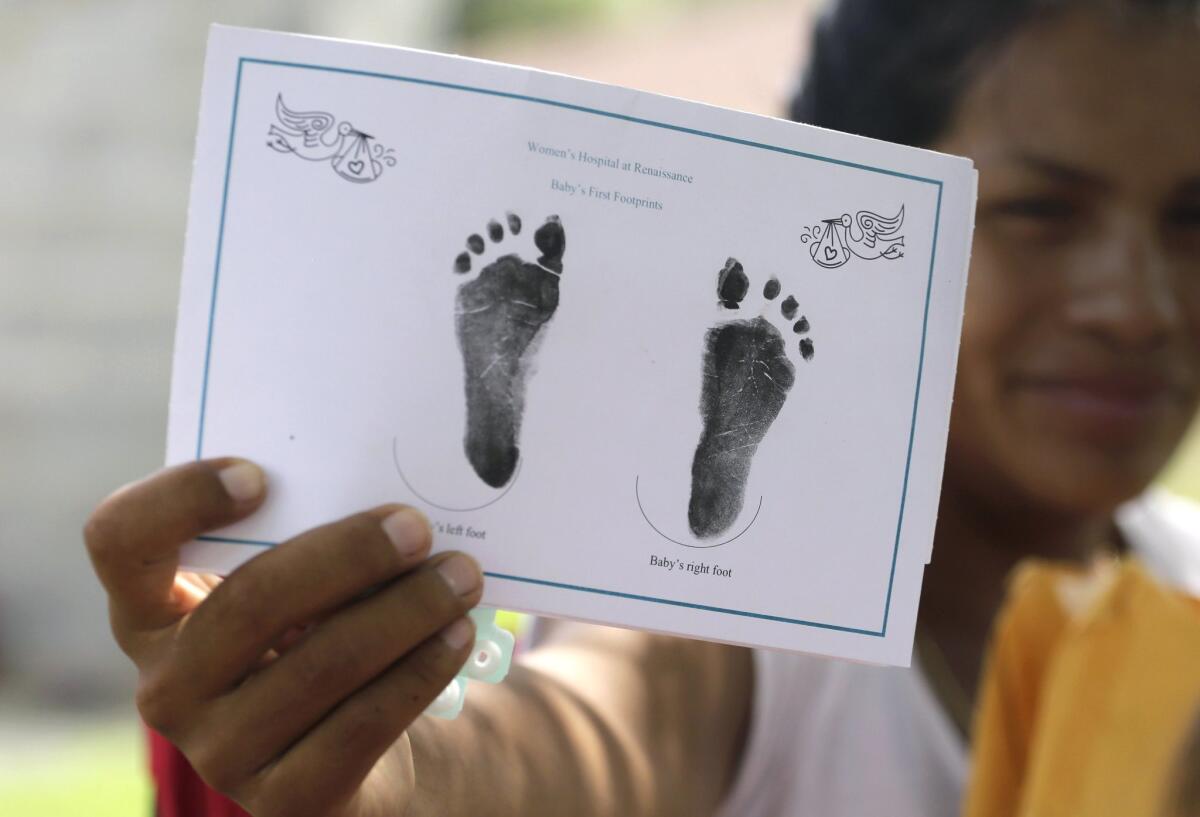Editorial: Can you be born in Texas and not be an American?

A woman in Sullivan City, Texas, who is in the country illegally, shows the footprints of her daughter who was born in the in the United State but was denied a birth certificate, on Sept. 16.
- Share via
The 14th Amendment declares that “all persons born or naturalized in the United States, and subject to the jurisdiction thereof, are citizens of the United States and of the state wherein they reside.” For more than a century, the U.S. Supreme Court has rightly interpreted that as conferring citizenship on children born on U.S. soil even if their parents aren’t citizens.
Yet in an ostensible effort to combat identity theft, Texas’ Vital Statistics Unit has been refusing to issue birth certificates to children born in the state unless the parents could prove their own identities through the kinds of records — driver’s license, military ID, passport or permanent residence card — that are out of reach for most people in the country illegally. Note that the birth certificates are for the babies, bestowing no rights on the parents, and are crucial for enrolling in school and for government services, obtaining baptisms and other common elements of American life.
Several mothers sued Texas, and U.S. District Judge Robert L. Pitman recently rejected their request for a temporary injunction to compel the state to issue birth certificates while the lawsuit proceeds. Pitman said the mothers, while raising “grave concerns,” had failed to provide enough evidence to suggest they would prevail on the merits of the case, which is necessary for an injunction. But Pitman also said the parents’ argument needs a fuller airing in court. We hope that happens quickly.
Texas began pressing local clerks in 2013 to follow a state law that doesn’t recognize matriculas — identity cards that consulates issue to their citizens — as official IDs. Texas argues that it distrusts the consular IDs, even though they include detailed personal information and embedded data to deter counterfeiting and fraud. As Pitman pointed out in his decision, state officials offered no evidence that they were having fraud problems before making it harder for parents to obtain their children’s birth certificates. And Texas is aggressively resisting federal efforts to slow deportations of longtime residents who are not considered threats to public safety or national security, which makes the state’s motives here suspect.
Immigration — both sanctioned and unsanctioned — is one of the nation’s most divisive issues. Yet the question here is not immigration but the rights of natural-born Americans to obtain proof of citizenship. Texas shouldn’t penalize lawful newborn citizens over thinly argued fears of ID fraud.
Follow the Opinion section on Twitter @latimesopinion and Facebook
More to Read
A cure for the common opinion
Get thought-provoking perspectives with our weekly newsletter.
You may occasionally receive promotional content from the Los Angeles Times.









